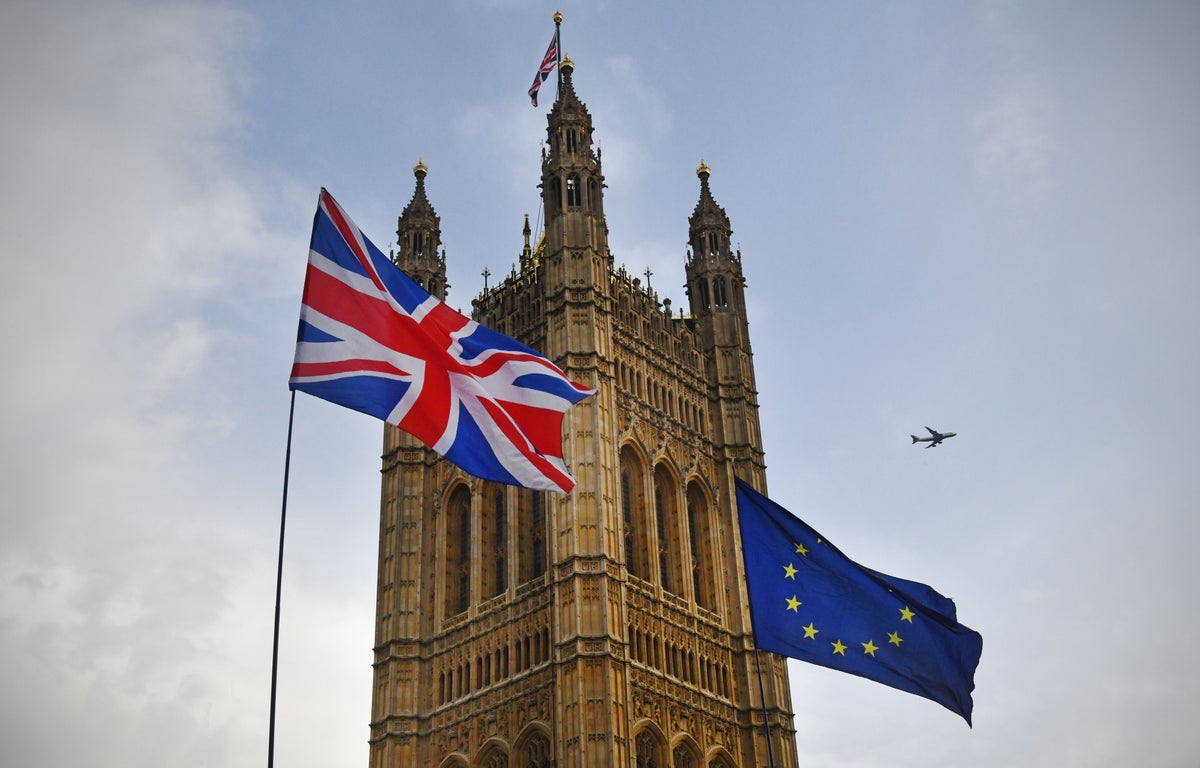
Britain’s creative industries are missing out on more than £160m in EU funding because of Brexit, new analysis shared with The Independent suggests.
It follows the Conservative government’s decision to pull the UK out of the EU’s Creative Europe project – which helps fund the continent’s arts and culture sector – during the Brexit negotiations.
Brussels recently increased the budget of its flagship cultural programme by 66 per cent to £2.1bn for the period running up until 2027.
The UK Trade and Business Commission estimated that without Brexit, the UK’s creative sectors would have received an extra £163m from the project – based on the percentage of total funds they received last cycle.
Arts chiefs said the shortfall was compounded by post-Brexit visa and supply chain issues which have hampered musicians, artists, fashion designers and filmmakers since the UK left the bloc.
Deborah Annetts, chief executive of the Independent Society of Musicians, said the burden of all new requirements was still causing “great harm to one of our flagship industries”.
Ms Annetts, who sits on the UK Trade and Business Commission, added: “At a time when we desperately need growth in the UK economy the government urgently needs to replace this lost EU funding and root out the mountains of red tape which Brexit has imposed on the creative industries.”
The Independent previously revealed that Boris Johnson’s government rejected an offer of visa-free tours by musicians to EU countries, sparking outrage from the industry dealing with the costly blow of permits.
The Johnson government also rejected an offer to remain part of the Creative Europe scheme during the Brexit talks, despite the fact that non-EU members like Norway and Serbia take part.
Despite promises to match lost EU funding, the UK Trade and Business Commission – a group of independent experts which examines the impact of Brexit – said the only successor scheme provided by the UK government, the Global Screen Fund, provided just £7m in its first year.
The loss of millions in arts funding has been felt acutely in devolved nations. In Scotland, the Centre for the Moving Image (CMI) – which received around £350,000 and operated art cinemas and film festivals – went into administration last year.
And the Nerve Centre, a creative arts hub in Northern Ireland, has said that the loss of around £130,000 from Creative Europe has damaged its ability to take risks.
John Peto, lead producer at the Nerve Centre, said the loss of EU funding “does limit our opportunities to learn from others, to innovate and experiment, and to develop the kind of connections that lie at the heart of success in the creative economy”.
The latest figures come as the UK Trade and Business Commission meets on Thursday to discuss the impact of Britain’s exit from the EU and new trade deals on the culture and arts industries.
Britain already lags behind other European countries in arts funding, according to analysis by the commission. The UK government’s culture and the arts spending amounted to £43.35 per person last year, the group said. The group said France spends £53.24 per capita annually on arts and culture, while in Denmark the total is £213.31 per head.
A spokesperson for the Department for Digital, Culture, Media & Sport (DCMS) said: “Our creative industries are a vital part of the UK economy and we are committed to supporting their success. Through initiatives like the Global Screen Fund we are supporting scores of independent productions as well as driving exports of UK film, TV and video games to new territories.”







